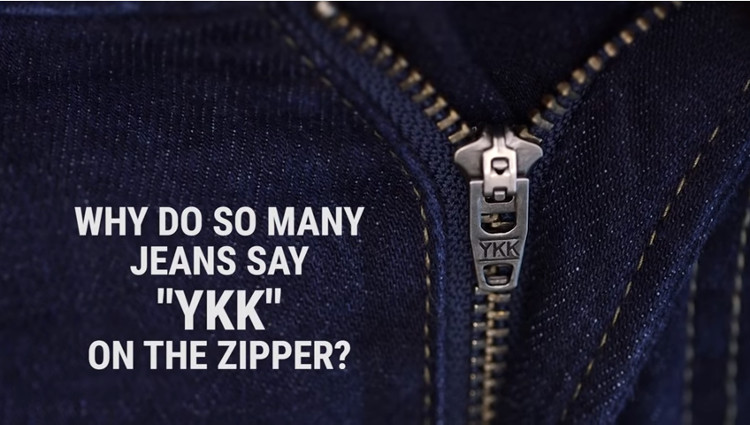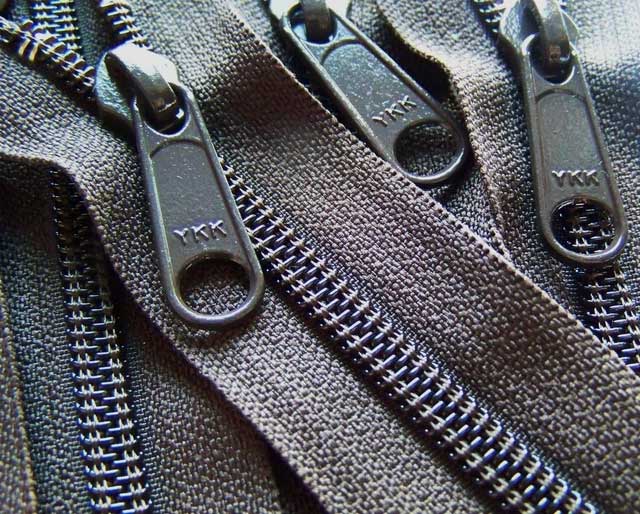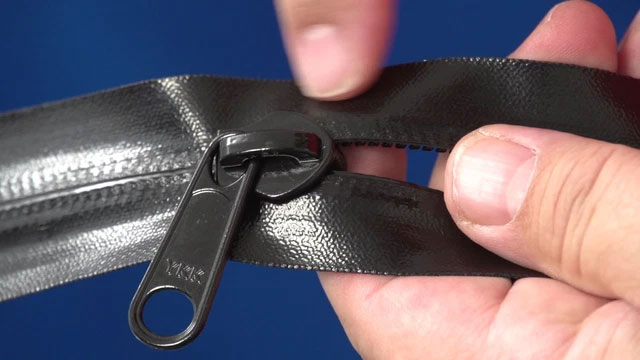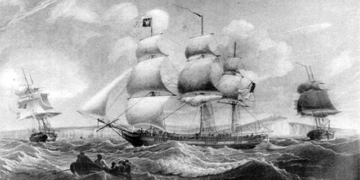If you have some free time, try pulling out your jeans and take a look at the zipper. Do you see this character?
The zipper, one of the most crucial yet incredibly simple inventions, is a product commonly found everywhere. But did you know that it is a relatively “latecomer” invention? It wasn’t until 1917 that we truly had the zipper as we know it today. Its importance makes us feel as though this invention has been around for a very long time.
If a zipper fails, the entire product can be considered trash. How can a jacket or a travel backpack last long if the zipper isn’t good? The quality of the zipper is also something that affirms the brand of a well-known item. Therefore, top brands cannot afford to take risks; they need to “choose wisely,” and the well-known face that leading companies turn to is YKK.

YKK = YOSHIDA KOGYO KABUSHIKAI SA, which means “Yoshida Corporation.”
YKK is actually the largest zipper manufacturer in the world. This Japanese company was founded in 1934 by Tadao Yoshida.
YKK = YOSHIDA KOGYO KABUSHIKAI SA means “Yoshida Corporation.”
The company also produces buttons, snap fasteners, belts, and many other accessories. They even sell machines for manufacturing zippers. YKK currently comprises 114 companies in 74 countries worldwide.
YKK even produced an entire anime series for advertising, titled “The Fastening Day,” which tells the story of two kids and a robot bear using zippers to protect their city.
A short anime film about zippers from YKK.
When he was younger, Yoshida experimented extensively with zipper-making machines, and none of the products he created satisfied him, simply because the manufacturing methods were still very limited.
Gradually, step by step, Yoshida changed each stage of the zipper production process. An article published in the Los Angeles Times noted that YKK zippers “self-alloy metal, self-mix polyester, self-weave thread, fabric, and dye for zippers, self-forge and mold the zipper teeth…”—all components are made in-house. In fact, even the shipping containers are produced by them.

All components are kept secret in YKK’s factories.
The machines that create these zipper masterpieces are self-produced and, of course, kept hidden from prying eyes of competitors in the market. All components are kept secret in YKK’s factories.
Additionally, Yoshida emphasized a management principle he called “The Cycle of Goodness.” The general idea of this principle is “no one succeeds unless they benefit others.” Based on this model, he strives to achieve the highest quality products possible at the lowest prices ever.
This may seem like a straightforward and easily attainable criterion, but in reality, it is not. Ultimately, the secret to YKK’s success, while extremely impressive, is quite simple: they produce high-quality products—exceptionally good zippers, ship goods perfectly, offer a wide variety of colors, materials, and styles, and above all, the production costs have never been compromised. All of this leaves one impression: once you choose YKK zippers, you will never have to worry again.
“In the past, we had some issues with our product quality when they all had cheap zippers,” said Trina Turk, owner and designer of a famous women’s activewear brand. “Now we only trust the YKK brand. When a customer buys a $200 pair of pants, they want to know they have a good zipper. Because once the zipper fails, they will blame the entire product and the maker.”

“Now we only trust the YKK brand.” – Trina Turk.
For example, a YKK nylon “invisible” zipper (the type that disappears when pulled up, often seen on the back of skirts) costs 32 cents. A designer who creates their product with a production cost ranging from $40 to $65 (and will sell for more, of course) will not skimp on costs with a bad zipper product. “The last thing we want is for our product to be cheaper than a competitor’s by a few cents but have a zipper that easily fails,” said Steve Clima, Turk’s senior production manager. “The price difference is too small; it really isn’t worth it.”
There are hundreds of zipper manufacturers competing with YKK in China. While products from that populous country might be cheaper, they may skip some production steps just to produce more items. The saying “you get what you pay for” seems to hold true in this case; many European companies refuse cheap zippers from China, fearing poor quality or even worse, that those products might contain harmful lead. Generally, major companies seem to avoid all non-YKK products.

To some extent, YKK remains a brand used to define quality.
However, YKK is not a product that the market uses to target consumers. You don’t buy a pair of jeans or a jacket just because they use YKK zippers, nor would you give up a beautiful jacket just because it doesn’t feature a YKK zipper.
<pNevertheless, YKK remains a brand used to define quality. It still represents an image, a reputation to uphold, or even, many call it a monument. Certainly, a brand may have different choices, products that are cheaper or better in certain aspects, but once everything falls apart (or at least when the zipper fails excessively), people will wonder “Why not stick with the classic that has been renowned for years, YKK zippers?”
There is no doubt that YKK has created a reliable image for decades, and perhaps it will continue to do so for many more decades to come. “A zipper does not make a product,” said Turk. “But it can ruin an entire product.”


















































